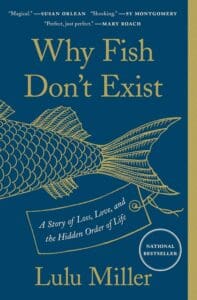Book Clubs
See what the Center for Faculty Excellence is reading during Summer 2025!
Registration is closed. Please check back next semester for more Book Clubs!
After registration closes, you will receive meeting information (including a Zoom /Teams link, if applicable) in an Outlook calendar invitation, and shortly thereafter, the book will be sent to your home.
Bring Your Own Teaching-Related Book
Book Club Facilitator: Meghan Cook, Asst. Director of the Center for Faculty Excellence

Looking for time and space to finally read that teaching-related book on your shelf? The CFE’s Bring Your Own Teaching-Related Book Club invites you to explore new ideas and reflect on your practice alongside colleagues in a relaxed, discussion-based setting.
Bring any teaching-related book you’d like to read—your own pick, one from past CFE Book Clubs (see past selections below), or borrow from The Spark Shelf, our curated lending library of teaching and learning resources. You can also participate in The Spark Exchange, a dedicated space for swapping teaching-related books—simply bring a book you’ve finished and trade it for one a colleague has contributed. Both The Spark Shelf and The Spark Exchange are located in Gyte 140 on the Hammond campus.
This is a great opportunity to build connections with fellow educators, gain fresh perspectives on teaching and learning, and reinvigorate your instructional approach—all in a relaxed and supportive environment. Whether you are looking to deepen your understanding of a specific teaching strategy or simply enjoy meaningful conversations about education, we invite you to join us!
Book Club Meeting Dates
Virtual Book Club
- Tuesday, June 10, 10 to 11:30 a.m., virtual only
- Tuesday, July 8, 10 to 11:30 a.m., virtual only
- Tuesday, August 5, 10 to 11:30 a.m., virtual only
Field Notes from a Catastrophe: Man, Nature, and Climate Change
Book Club Facilitator: MITA CHOUDHURY, Professor of English

Book Author: Elizabeth Kolbert
Book Description (Excerpted from Amazon):
Elizabeth Kolbert’s environmental classic Field Notes from a Catastrophe first developed out of a groundbreaking, National Magazine Award-winning three-part series in The New Yorker. She expanded it into a still-concise yet richly researched and damning book about climate change: a primer on the greatest challenge facing the world today.
But in the years since, the story has continued to develop; the situation has become more dire, even as our understanding grows. Now, Kolbert returns to the defining book of her career. She has added a chapter bringing things up-to-date on the existing text, plus three new chapters–on ocean acidification, the tar sands, and a Danish town that’s gone carbon neutral–making it, again, a must-read for our moment.
Book Club Meeting Dates
Hybrid Book Club
- Wednesday, June 11, 12:30 to 2 p.m., Hammond campus and with Teams available
- Wednesday, July 9, 12:30 to 2 p.m., Hammond campus and with Teams available
- Wednesday, August 6, 12:30 to 2 p.m., Hammond campus and with Teams available
Why Fish Don’t Exist (One Book One University book)
Book Club Facilitators: Justin Ness, Continuing Lecturer, Department of English and World Languages and Sarah White, Director of First-Year Writing/Assistant Professor of Practice, Department of English and World Languages

Book Author: Lulu Miller
Book Description (Excerpted from Amazon):
David Starr Jordan was a taxonomist, a man possessed with bringing order to the natural world. In time, he would be credited with discovering nearly a fifth of the fish known to humans in his day. But the more of the hidden blueprint of life he uncovered, the harder the universe seemed to try to thwart him. His specimen collections were demolished by lightning, by fire, and eventually by the 1906 San Francisco earthquake—which sent more than a thousand discoveries, housed in fragile glass jars, plummeting to the floor. In an instant, his life’s work was shattered.
Many might have given up, given in to despair. But Jordan? He surveyed the wreckage at his feet, found the first fish that he recognized, and confidently began to rebuild his collection. And this time, he introduced one clever innovation that he believed would at last protect his work against the chaos of the world. When NPR reporter Lulu Miller first heard this anecdote in passing, she took Jordan for a fool—a cautionary tale in hubris, or denial. But as her own life slowly unraveled, she began to wonder about him. Perhaps instead he was a model for how to go on when all seemed lost. What she would unearth about his life would transform her understanding of history, morality, and the world beneath her feet.
Part biography, part memoir, part scientific adventure, Why Fish Don’t Exist is a wondrous fable about how to persevere in a world where chaos will always prevail.
Book Club Meeting Dates
Virtual Book Club
- Thursday, May 29, 10:00 a.m. to 11:30 a.m., virtual only
- Thursday, June 12, 10:00 a.m. to 11:30 a.m., virtual only
- Thursday, June 26, 10:00 a.m. to 11:30 a.m., virtual only
- Thursday, July 10, 10:00 a.m. to 11:30 a.m., virtual only
Books Read in Previous Book Clubs
Revisit the books that the Center for Faculty Excellence has used in previous book clubs.
- A Pedagogy of Kindness by Catherine J. Denial (Spring 2025)
- First Gen: A Memoir by Alejandra Campoverdi (Fall 2024)
- Teaching with AI: A Practical Guide to a New Era of Human Learning by Jose Antonio Bowen and C. Edward Watson (Fall 2024)
- The Sustainability Mindset Principles: A Guide to Developing a Mindset for a Better World by Isabel Rimanoczy (Summer 2024)
- The Souls of Black Folk by W. E. B. Du Bois (Summer 2024)
- The Parrot and the Igloo: Climate and the Science of Denial by David Lipsky (Summer 2024)
- Atlas of the Heart by Brené Brown (Summer 2024)
- The Happiness Advantage: How a Positive Brain Fuels Success in Work and Life by Shawn Achor (Spring 2024)
- Ask Powerful Questions: Create Conversations That Matter by Will Wise and Chad Littlefield (Spring 2024)
- Relationship-Rich Education: How Human Connections Drive Success in College by Peter Felten and Leo M. Lambert (Spring 2024)
- Inclusive Teaching: Strategies for Promoting Equity in the College Classroom by Kelly A. Hogan and Viji Sathy (Fall 2023)
- Faculty Burnout: Pathways to Reckoning and Renewal by Rebecca Pope-Ruark (Summer 2023)
- Under a White Sky: The Nature of the Future by Elizabeth Kolbert (Summer 2023)
- Make it Stick: The Science of Successful Learning by Peter C. Brown, Henry L. Roediger III, and Mark A. McDaniel (Spring 2023)
- The Power of Moments by Chip Heath and Dan Heath (Spring 2023)
- UNgrading: Why Rating Students Undermines Learning (and What to Do Instead), edited by Susan D. Blum (Fall 2022)
- How Humans Learn: The Science and Stories behind Effective College Teaching (Teaching and Learning in Higher Education) by Joshua R. Eyler (Summer 2022)
- College Students Sense of Belonging – A Key to Educational Success for All Students by Terrell L. Strayhorn (Summer 2022)
- Teach Students How to Learn: Strategies You Can Incorporate Into Any Course to Improve Student Metacognition, Study Skills and Motivation by Saundra Yancy McGuire (Spring 2022)
- Mindset: The New Psychology of Success, How we can learn to fulfill our potential by Carol S. Dweck, Ph.D. (Spring 2022)
- Whistling Vivaldi: How Stereotypes Affect Us and What We Can Do by Claude M. Steele (Fall 2021)
- Keeping Us Engaged: Student Perspectives (and Research-Based Strategies) on What Works and Why by Christine Harrington and 50 college students (Fall 2021)
- Becoming a Student-Ready College: A New Culture of Leadership for Student Success by Tia Brown McNair, et al. (Summer 2021)
- Bandwidth Recovery: Helping Students Reclaim Cognitive Resources Lost to Poverty, Racism, and Social Marginalization by Cia Verschelden (Spring 2021)
- Small Teaching Online: Applying Learning Science in Online Classes by Flower Darby and James M. Lang (Fall 2020, Spring 2021)
- The Sun Does Shine: How I Found Life, Freedom and Justice by Anthony Ray Hinton (Fall 2020)
- Small Teaching: Everyday Lessons from the Science of Learning by James M. Lang (Spring 2020)
- The Disappearing Spoon: And Other True Tales of Madness, Love and the History of the World from the Periodic Table of the Elements by Sam Kean (Spring 2020)
- What the Best College Teachers Do by Ken Bain (Spring & Summer 2019)
- Generation Z Goes to College by Corey Seemiller and Meghan Grace (Fall 2019)